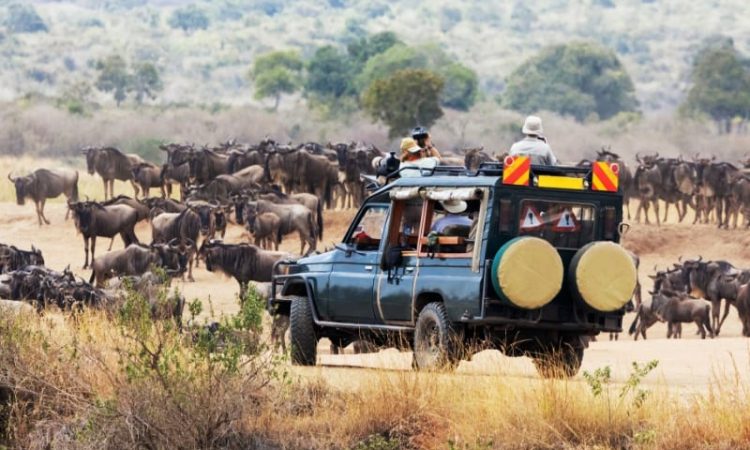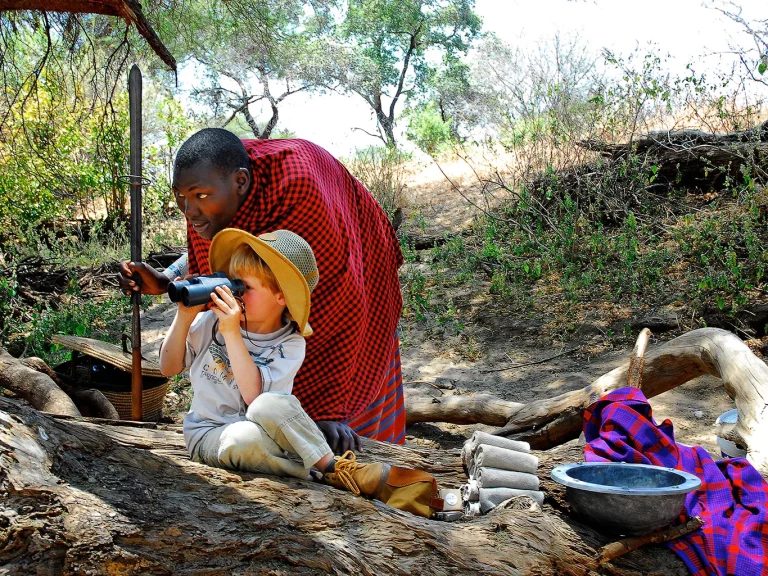Good Suggestions To Picking Devil666 Slot Websites
Wiki Article
What Safety And Security Factors Should I Be Aware Of While Traveling In Mombasa, Kenya?
It is important to be aware of security and safety concerns when visiting Mombasa in Kenya. This will guarantee an enjoyable and stress-free journey. Here are some important points to be aware of:
1. General Security
Stay Informed. Keep up with local news as well any travel advice from the country you're visiting.
Make an appointment with your embassy If necessary, register with your embassy in Kenya in order to receive assistance in an emergency.
2. Health Precautions
Vaccinations: Be sure to keep up-to-date with routine vaccinations. Think about additional vaccines such as Hepatitis B and A, as well as Typhoid or Yellow Fever.
Mombasa is a malaria-prone region and, is best avoided. Make use of antimalarial medicines, insect repellents and wear long sleeves during the evening.
Food and water security Drink boiled, bottled or cooked water. Avoid freezing. Be aware of street food.
3. Personal Security
Beware of walking by yourself at night: Stay in well-lit, populated areas. Avoid walking along the beach at night or in quiet places.
Hotel safes are a great option to store valuables such as passports and cash. Avoid displaying costly objects like jewelry or electronics.
Choose a trusted transportation option: Use certified taxis, ride hailing service or transport arranged by your hotel. Avoid taxis with no markings.
4. Local Laws and Customs
Respect the local culture. Dress modestly when you visit religious sites. Be aware of local customs and rituals.
Drug Laws: Kenya has strict drug laws, with strict penalties. Avoid illegal drugs.
Always seek permission prior to photographing, especially in areas of rurality and military or government buildings.
5. Beach and Water Safety
Swim safely. Pay attention to the local news regarding conditions, currents and swimming. Be sure to use designated swimming areas.
Marine Wildlife: Be wary of marine creatures such as sea urchins and jellyfish. Walking along the beach requires proper footwear.
6. Crime Prevention
Petty Criminals. The possibility of bag snatching or pickingpocketing is possible, especially in areas that are populated with lots of people. Be sure to keep your valuables safe and stay vigilant.
Scams: Be wary of strangers offering assistance that seems generous or offers that are too appealing to be true. Use only licensed tour operators.
Keep emergency numbers handy such as Fire (999) Police (999) and Ambulance (9999). Keep the contact numbers of your country's embassy or consulate in your pocket.
7. Natural Hazards
Weather: Mombasa has a tropical climate, which could lead to massive rains and flooding, particularly during the rainy seasons (April-June and October-November). Be alert to weather forecasts.
Sun Protection: Protect yourself from sunburns and heat exhaustion by wearing hats and hats, applying sunscreen and drinking plenty of water.
8. Travel Insurance
Comprehensive Coverage. Be sure that the travel insurance you purchase provides protection for emergency medical situations, theft, and loss, as well interruptions to travel. Make sure that your insurance policy includes water sports as well as other activities you plan to engage in.
If you consider these safety and security concerns, you will enjoy a better holiday in Mombasa. Follow the top rated Kenya safaris for blog info including kenya safaris and tours, mombasa safaris kenya, tour agents in kenya, facts about kenya, kenya tours, african safari tours, kenya safaris, africa tours and safaris, kenya safari and beach, safari a nairobi and more.

What Cultural Sensitivity Considerations Should I Be Aware When I Travel To Mombasa In Kenya?
The importance of cultural sensitivity is paramount when you travel to Mombasa Kenya to enhance your experience. Here are some key things to think about:
1. Dress according to local dress codes
Mombasa has a large Muslim community. It is respectful to dress modestly in public places, religious sites, and neighborhood areas. This includes covering shoulders, chest and even knees.
Beachwear. While it's fine to wear swimwear on the beach itself, you may want to cover your skin when leaving the area and visiting nearby eateries or shops.
2. Religious Sensitivity
Visit Mosques. If you plan to visit a Muslim mosque make sure you have permission to enter and wear conservative attire. Women must cover their heads and all visitors must take off their shoes prior to entering.
Be aware of the times for prayer. Especially if there is a mosque nearby Be mindful and considerate.
3. Photography Etiquette
Permission: Get permission prior to taking pictures of people in traditional or rural settings. People who are uncomfortable might think that photographs are too intrusive.
Restricted Areas: Don't take photos of sensitive locations like military installations, government buildings, and certain cultural sites where photography may be prohibited.
4. Social Interactions
It is important to greet people politely. In Swahili one of the most popular greetings is "Jambo". Handshakes are normal, however for Muslim women, it's respectful to wait until they extend their hand first or simply say hello verbally.
Personal Space: Remember the need to respect the privacy of your own space.
5. Cultural Norms and Taboos
Public Displays of Love: Beware of publicly displayed affection displays because they are typically not appreciated.
Left Hand Usage - Traditionally, the left hand was thought to be dirty. Use your right hand to eat or greet others, as well as to exchange money or goods.
Feet: Showing your feet or pointing people using your feet can be considered rude.
6. Language and Communication
Basic Swahili. Being aware of a few Swahili basic phrases can go a great way to build rapport with locals and showing respect. Common phrases include "Asante", "Habari", and "Thank for your". ).
Politeness is crucial. Be patient and polite when you communicate. Kenyans value courteous and respectful interactions.
7. Respect for local Customs
Respect customary ceremonies and rituals. If you're invited for an event in your area Follow your hosts and watch their behaviour.
Bargaining is a regular thing in the local market and at shops. But, it must be done with respect and humour. It's more cultural than confrontational.
8. Alcohol and Smoking
Alcohol is widely available in all regions, but it shouldn't be consumed in public. Beware of public drinking.
Smoking is generally prohibited in public spaces. Look for designated smoking areas.
9. Environmental Respect
Littering. Avoid littering. Make sure you get rid of your trash properly. Take care of nature and wildlife.
Conservation: Help conserve the environment by preserving wildlife and local habitats. Beware of buying products that contain endangered species.
10. Supporting Local Communities
Local Businesses: Encourage local businesses, artisans and markets to positively contribute to the local economy.
Responsible Tourism: Engage in responsible tourism by selecting sustainable and environmentally friendly tourism alternatives that benefit the local population.
Consider these cultural sensitivity tips to enhance your experience in Mombasa and to gain a greater understanding and appreciation of the local culture. Follow the recommended mombasa watamu snorkeling for site info including safari and tours, trips to kenya africa, kenya safari holiday, kenya tour operator, trips to kenya, safar kenya, kenya safari and beach, kenya tourism, african safari packages, africa tours and more.

What Environmental Obligations Must I Be Aware Of While On Vacation In Mombasa?
Being environmentally responsible when vacationing in Mombasa is vital to safeguard the beauty of the area and its rich biodiversity. Here are some of the most important environmental responsibilities to take into consideration:
1. Sustainable Accommodation
Eco-friendly Hotels: Choose hotels that practice sustainability. Look for eco-labels and certifications such as Eco-Tourism Kenya.
Participate in the hotel's initiatives to conserve water. Reuse towels, linens and shut off the lights and air conditioner when not needed.
2. Responsible Wildlife Viewing
Be respectful of wildlife. Do not disturb animals by keeping your space secure and them. Follow the rules set out by your guide on the tour.
Do not feed wild animals. Feeding wildlife can cause disruption to their normal behavior and eating habits.
Leave No trace. Do not litter the wildlife parks or reserves. Take your trash home and properly dispose of it.
3. Plastic Reduction
Avoid plastics that are single-use. Take a bag for shopping that is reusable as well as a water bottle and other utensils.
Support Local Initiatives - Participate or support local beach cleaning efforts and groups that are striving to reduce the amount of plastic waste.
4. Water Conservation
Mombasa is a water-scarce city. Use shorter showers, and turn off the water when it is not being used.
Eco-Friendly Product: Minimize the impact of water pollution using biodegradable, eco-friendly products.
5. Energy Conservation
Reduce Energy Consumption: Limit the usage of air conditioning and disconnect devices that aren't in use.
Support Renewable Energy Select accommodation and tour operators which use renewable energy.
6. Sustainable Transportation
Public Transport: If you can minimize your carbon footprint using public transport, such as matatus and buses.
Try using bicycles to cover short distances. Some areas offer eco-friendly tuk-tuks.
7. Supporting Local Economy
Support local businesses: Contribute to local businesses by buying souvenirs, food and other items from local merchants.
Fair Trade: Select products that have been deemed fair trade in order to ensure that local producers receive fair compensation.
8. Environmental Education
Learn and share: Be informed about your local environment and conservation efforts. Do share your knowledge with others to create awareness.
Respect local cultures. Understand and respect traditions and customs that are related to the conservation of environmental resources.
9. Marine Conservation
To ensure that you are taking your snorkeling and diving in a safe manner be sure to avoid touching coral reefs or walking onto them. Use non-toxic, reef-safe sunscreen to protect marine wildlife.
Don't dispose of waste in the ocean. Participate in or support programs for marine conservation.
10. Ethical Souvenirs
Avoid products from wildlife. Do not purchase products that are made from endangered species. Examples include ivory and tortoiseshell.
Sustainable Materials: Purchase items made of sustainable or recycled materials.
11. Join in the Conservation Activities
Volunteer: Think about taking part in local conservation projects or community-based tourism initiatives.
Support local conservation organizations and NGOs who work to protect the environment.
12. It is a good idea
Group Size: Traveling in small groups will minimize the impact on the environment.
Eco-Tours: Choose tour operators that are environmentally friendly and committed to sustainability.
By keeping these environmental responsibilities in mind, you can contribute to the preservation of Mombasa's natural resources, and ensure that the beauty and biodiversity of the region are maintained for future generations. Check out the most popular mombasa watamu snorkeling for blog examples including african safari packages, mombasa tour companies, kenya tours and travel, africa tours and safaris, mombasa tour packages, kenya safari holiday, tour and travel company, safari a nairobi, mombasa safaris kenya, trip tour companies and more.
